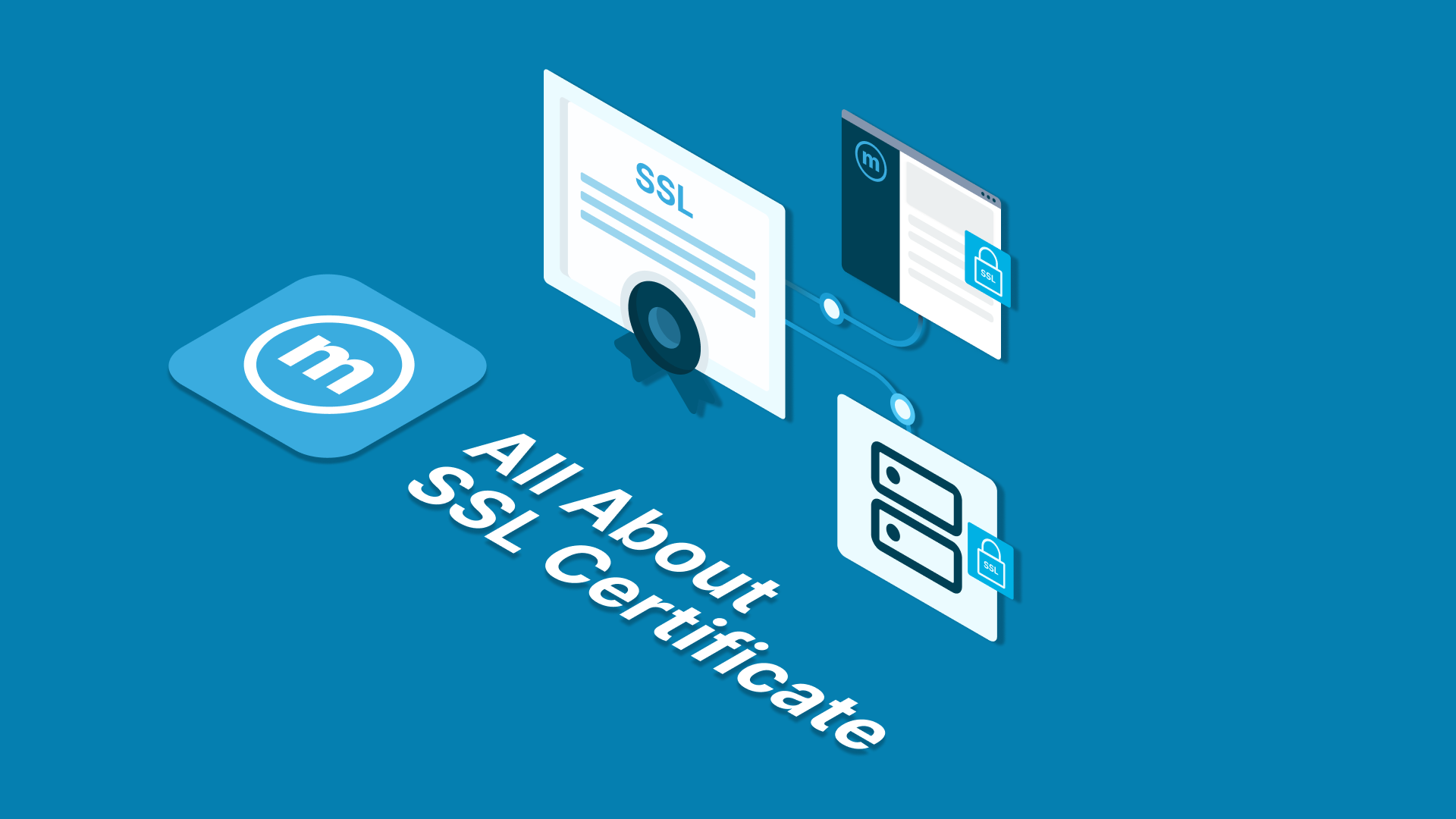SSL Certificate: Proper Way to Protect Your Email

The activity of sending email involves moving data from the sending server to the receiving server. This process is very vulnerable to being infiltrated by unauthorized parties. Email interception can be used to steal sensitive data, such as personal data, financial information, or trade secrets.
An SSL certificate is one way to secure your email from eavesdropping. SSL certificates work by using encryption to protect data sent via email. Encryption makes data unreadable by unauthorized parties. In this article, we will discuss the importance of SSL certificates for email security.
What is an SSL Certificate?
An SSL (Secure Sockets Layer) certificate, is a digital file used to prove ownership of a device using a public key. SSL itself is an earlier version of TLS (Transport Socket Layer). This certificate are used to secure communications between two devices on the Internet, for example between a browser and a web server.
When you visit a secure website, you will see a padlock icon in your browser's address bar. This indicates that the website uses an SSL certificate. Additionally, you can also view information about it in your browser's address bar. This information typically includes the website domain name, certificate type, and expiration date.
The following is an example of what an SSL certificate looks like in Google Chrome:
https://www.example.com
- Valid SSL certificate
- Certificate type: Extended Validation (EV)
- Expiration date: 2025-03-08
How SSL Certificates Work
SSL certificates work by using encryption to protect the data sent. Encryption uses a public key and a private key. The public key is used to encrypt data, while the private key is used to decrypt data.
When you visit a secure website, your browser will request a certificate from the web server. The web server will send the certificate to your browser. Your browser will then check the SSL certificate to ensure that it is valid and comes from the correct website.
If it is valid, your browser will establish an encrypted connection with the web server. Data sent between your browser and the web server is encrypted using the web server's public key.
Benefits of SSL Certificates for Email Security
SSL certificates have many benefits for email security, including:
1. Protect sensitive data from eavesdropping
SSL use encryption to protect data sent via email. Encryption makes data unreadable to unauthorized parties, even if they manage to infiltrate the network.
Sensitive data sent via email, such as personal data, financial information, or trade secrets, can be protected from interception by using this security protocol.
2. Helps prevent spam
Spam is unwanted email sent in bulk. Spam often contains malware or fraud.
SSL certificates can help prevent spam by making it more difficult for spammers to send emails. This is because spam senders must have an SSL certificate to send emails to email addresses that use an SSL certificate.
3. Helps prevent phishing
Phishing is an attempt to trick people into giving away their personal information, such as passwords or credit card numbers.
It can help prevent phishing by making it more difficult for phishers to create emails that look like they come from a trusted source. This is because the phisher must have an SSL certificate to create an email that uses an SSL certificate.
Here are some examples of how SSL certificates can be used to protect email:
- A company can use it to protect customers' personal information sent via email, such as names, addresses, and credit card numbers.
- A bank can use an it to protect financial information sent via email, such as account numbers and PINs.
- A government can use an it to protect trade secrets sent via email.
By using an SSL certificate, you can help protect your email from eavesdropping, spam, and phishing.
Tips for Industry: How to Keep Email Sending Safe
Like the use case above, industry players like you are required to guarantee the security of email sending. Not only for the sake of customers but also for the sustainability of your company. For this reason, we have tips for maintaining email security so that your personal data, financial information, or trade secrets are safe from cyber threats.
- Use an email-sending service that has an SSL certificate. An SSL certificate will encrypt data sent via email so that the data cannot be read by unauthorized parties.
- Use strong and complex passwords for your email accounts. A strong password will make it more difficult for hackers to access your email account.
- Enable two-factor authentication (2FA) for your email account. 2FA will add an additional layer of security to your email account by requiring you to enter a code sent to your device in addition to your password.
- Update your email software regularly. Software updates often include security fixes that can help protect your email.
- Be careful with suspicious emails. Don't open emails from unknown senders or emails that contain unexpected links or attachments.
Conclusion
Based on the information we convey through this article, the answer cannot be no. You need an email service that is guaranteed security, proven by an SSL certificate and international security standards such as ISO. Our service fulfills that by offering quality features that are also maintained.If you're interested in trying it yourself, you can sign up for our sandbox here. Or first learn other things about sending secure emails on our blog.
(V.V)

